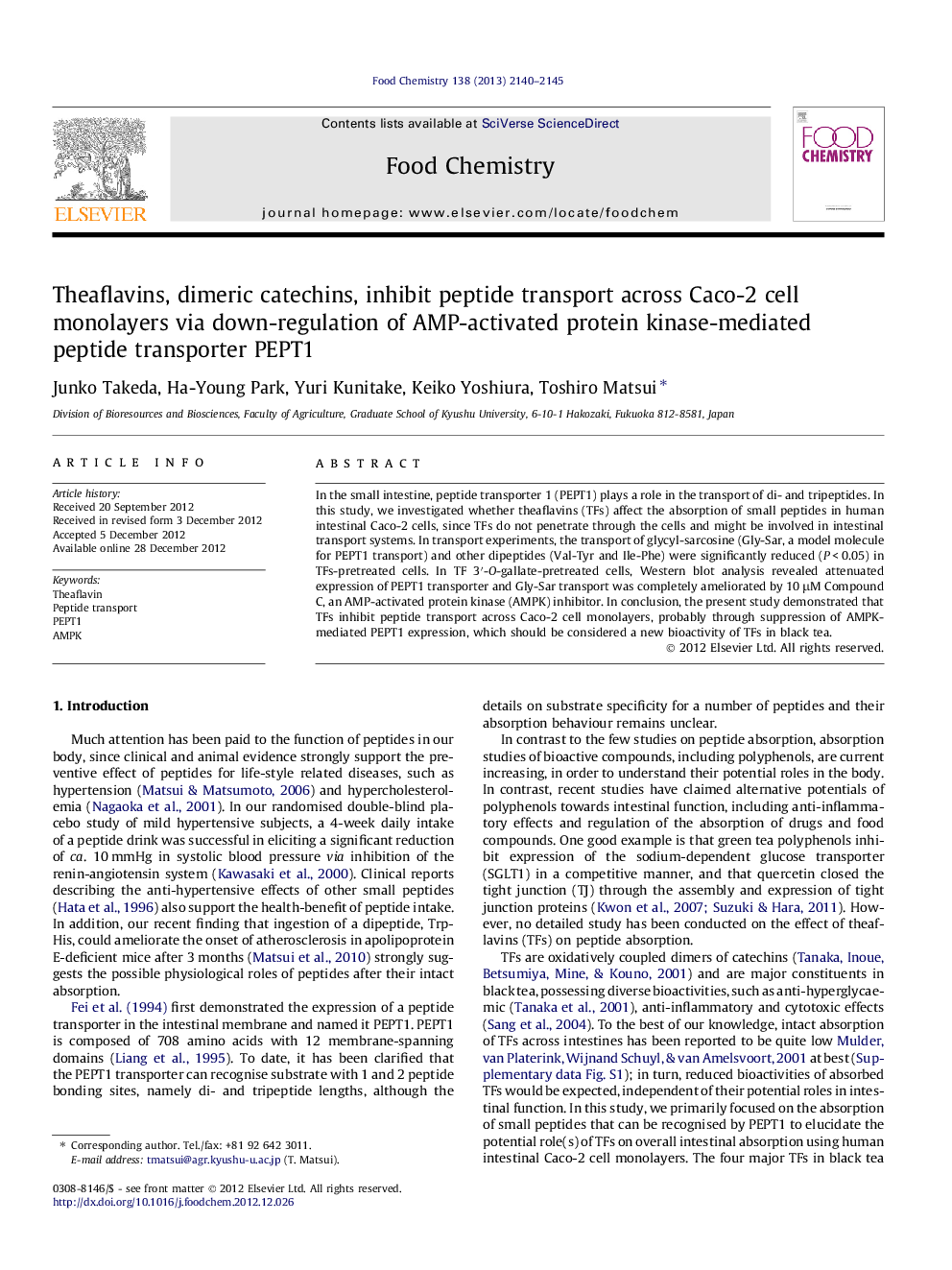| Article ID | Journal | Published Year | Pages | File Type |
|---|---|---|---|---|
| 1185495 | Food Chemistry | 2013 | 6 Pages |
In the small intestine, peptide transporter 1 (PEPT1) plays a role in the transport of di- and tripeptides. In this study, we investigated whether theaflavins (TFs) affect the absorption of small peptides in human intestinal Caco-2 cells, since TFs do not penetrate through the cells and might be involved in intestinal transport systems. In transport experiments, the transport of glycyl-sarcosine (Gly-Sar, a model molecule for PEPT1 transport) and other dipeptides (Val-Tyr and Ile-Phe) were significantly reduced (P < 0.05) in TFs-pretreated cells. In TF 3′-O-gallate-pretreated cells, Western blot analysis revealed attenuated expression of PEPT1 transporter and Gly-Sar transport was completely ameliorated by 10 μM Compound C, an AMP-activated protein kinase (AMPK) inhibitor. In conclusion, the present study demonstrated that TFs inhibit peptide transport across Caco-2 cell monolayers, probably through suppression of AMPK-mediated PEPT1 expression, which should be considered a new bioactivity of TFs in black tea.
► Theaflavins (TFs) inhibit peptide transport across Caco-2 cell monolayers. ► Peptide transporter 1 (PEPT1) expression was attenuated by TFs. ► TF-induced inhibition of peptide transport is likely through AMPK-signalling pathways.
